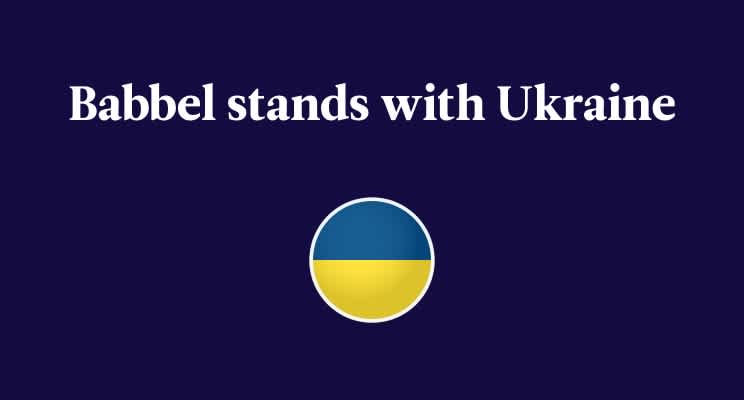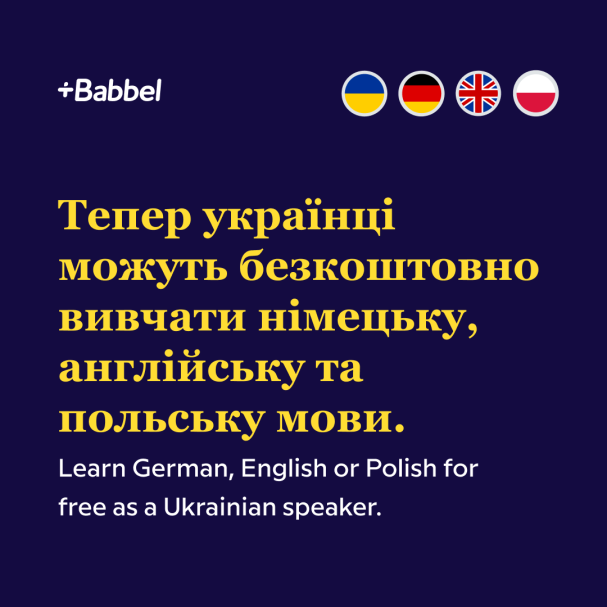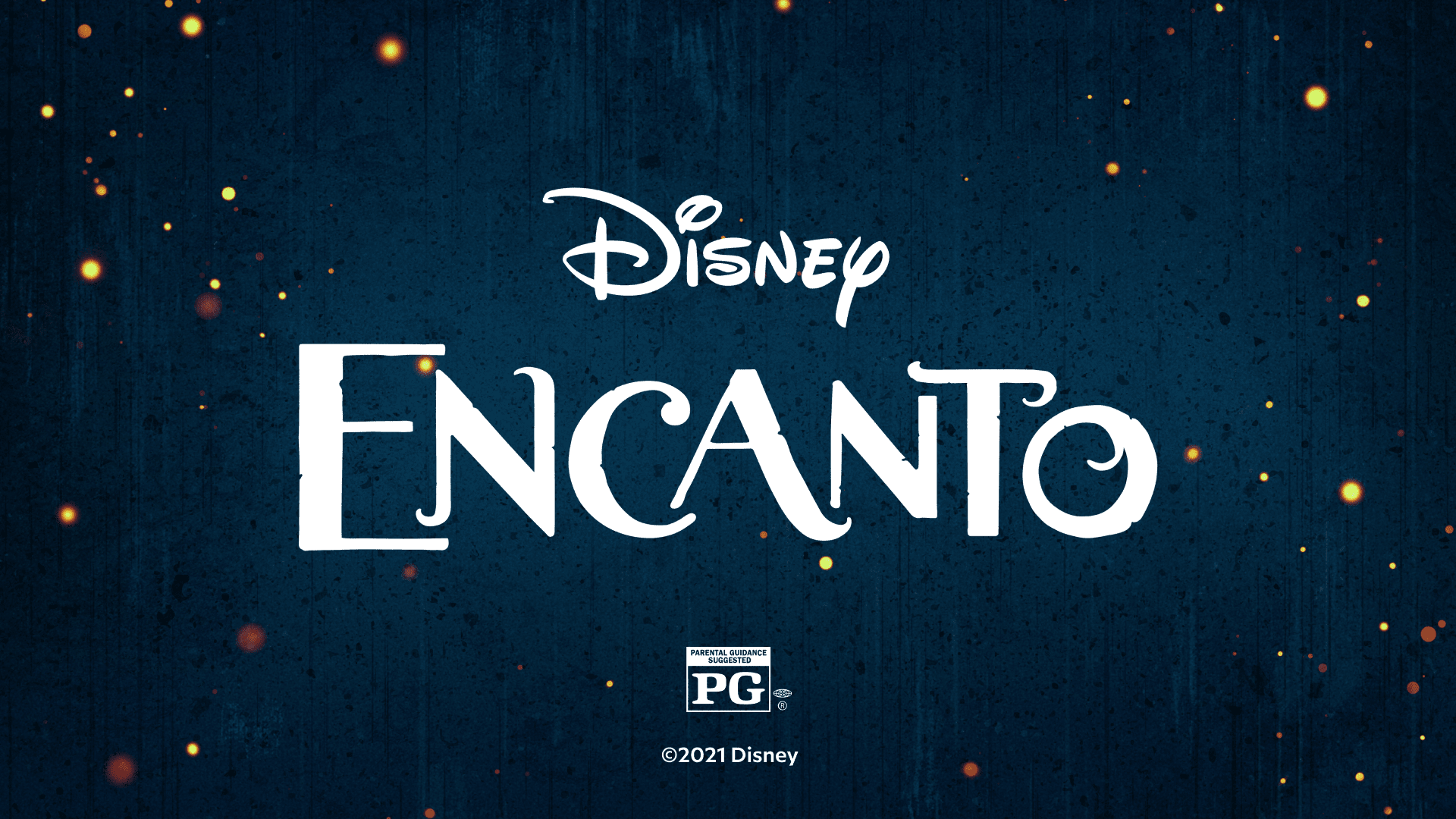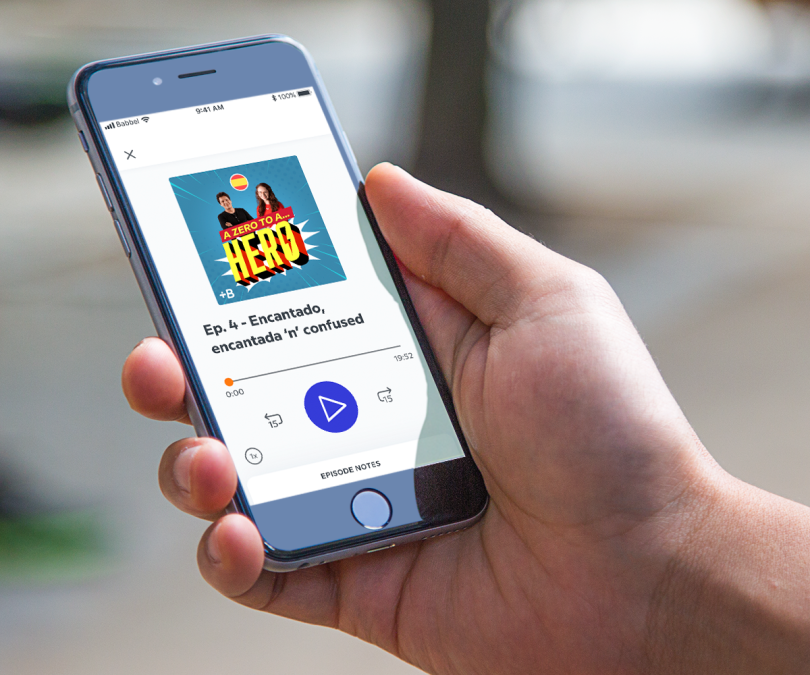
Hundreds of Thousands of Ukrainians Learn Languages with Babbel
The courses to learn English, German, and Polish are most used from within Ukraine, followed by learners learning from Poland, and most learners are choosing to learn English
The courses cater beginners as well as intermediate learners (A1 - B2) with expert created lessons as well as language learning games
Berlin, Monday June 20th 2022: Marking World Refugee Day 2022, Babbel announces that nearly 200k Ukrainian speakers have taken up its free courses only weeks since its launch in early May. That this milestone is achieved within this short time is testament to its meeting a real human need. Babbel’s team built these courses to offer Ukrainian speakers the opportunity to learn German, Polish or English for free just weeks after the war started, in the hope to bridge a language gap for those affected by it. Firstly offering beginner level content to enable learners to start speaking useful words and phrases immediately, now the courses are available in full, offering levels from Beginner, Beginner 2, Pre-Intermediate and Intermediate (CEFR levels A1 - B2), and have expanded to include more ways to learn such as its Phrase Maze and Word Trax games, all centred around Babbel’s academically proven method.
“The creation of our Ukrainian courses is a project that our team poured their hearts into. As with many products, reality sets in when it is actually put to use. In this case, it’s humbling to see hundreds of thousands of Ukrainians learn a new language with our platform and do so successfully.” says Arne Schepker, CEO at Babbel. “When we started the initiative, we did so because we’re convinced that the provision of language learning is a critical service, especially for displaced people and - as shown in this case - meeting a real societal need.”
Babbel’s data shows that the Ukrainian learners are varied in both their location and their choices of which language to learn. More than 45% of subscribers are joining from within Ukraine, followed by 19% of learners joining from Poland and 13% from Germany. This is consistent with displacement patterns published in studies from the United Nations High Commissioner for Refugees (UNHCR), which show substantial internal displacement within Ukraine and major influxes of refugees in Poland and Germany in the months following the invasion. Across markets, more than 59% of learners are choosing to study English.
The launch of courses for Ukrainians did also drive Babbel’s ratings in the Ukrainian app stores: Babbel is seeing an average rating of 4.9 in both Google Play and the Apple app store.
The language courses are available in Babbel’s app, available for download within the Apple app store, Google Play store, via babbel.com and via the dedicated landing page, which includes further offerings for Ukrainian refugees: ua.babbel.com. This broad offering has enabled access through multiple mediums, of which the most used is mobile. Babbel believes a large component of information exchange is through word-of-mouth amongst community members, as well as social media platforms and messaging apps.
In addition to language courses, Babbel has offered language-based resources, including a phrasebook of key Ukrainian phrases for citizens in host countries. Babbel continues to host Ukrainian humanitarian organisations in the Berlin office, where a volunteering centre offers support for the care and accommodation of refugees. All Babbel initiatives for refugees from Ukraine can be found here: ua.babbel.com.
About Babbel
Babbel develops and operates an ecosystem of interconnected online language learning experiences and is driven by the purpose of creating mutual understanding through language. This means building products that help people connect and communicate across cultures. The Babbel App, Babbel Live, Babbel Podcasts and Babbel for Business products focus on using a new language in the real world, in real situations, with real people. And it works: Studies by linguists from institutions such as Michigan State University, Yale University and the City University of New York demonstrated the efficacy of Babbel’s language learning methods.
The key is a blend of humanity and technology. Babbel offers more than 60,000 lessons across 15 languages, hand-crafted by more than 180 didactics experts, with user behaviors continuously analyzed to shape and tweak the learner experience. This results in constantly adapting, interactive content with live classes, games, podcasts and videos that make understanding a new language easy, from Spanish to Indonesian.
Because Babbel is for everyone, its team is as diverse as its content. From its headquarters in Berlin and its U.S. office in New York, 750 people from more than 65 nationalities represent the backgrounds, characteristics and perspectives that make all humans unique. Babbel sold over 15 million subscriptions by creating a true connection with users.
More information: www.babbel.com


